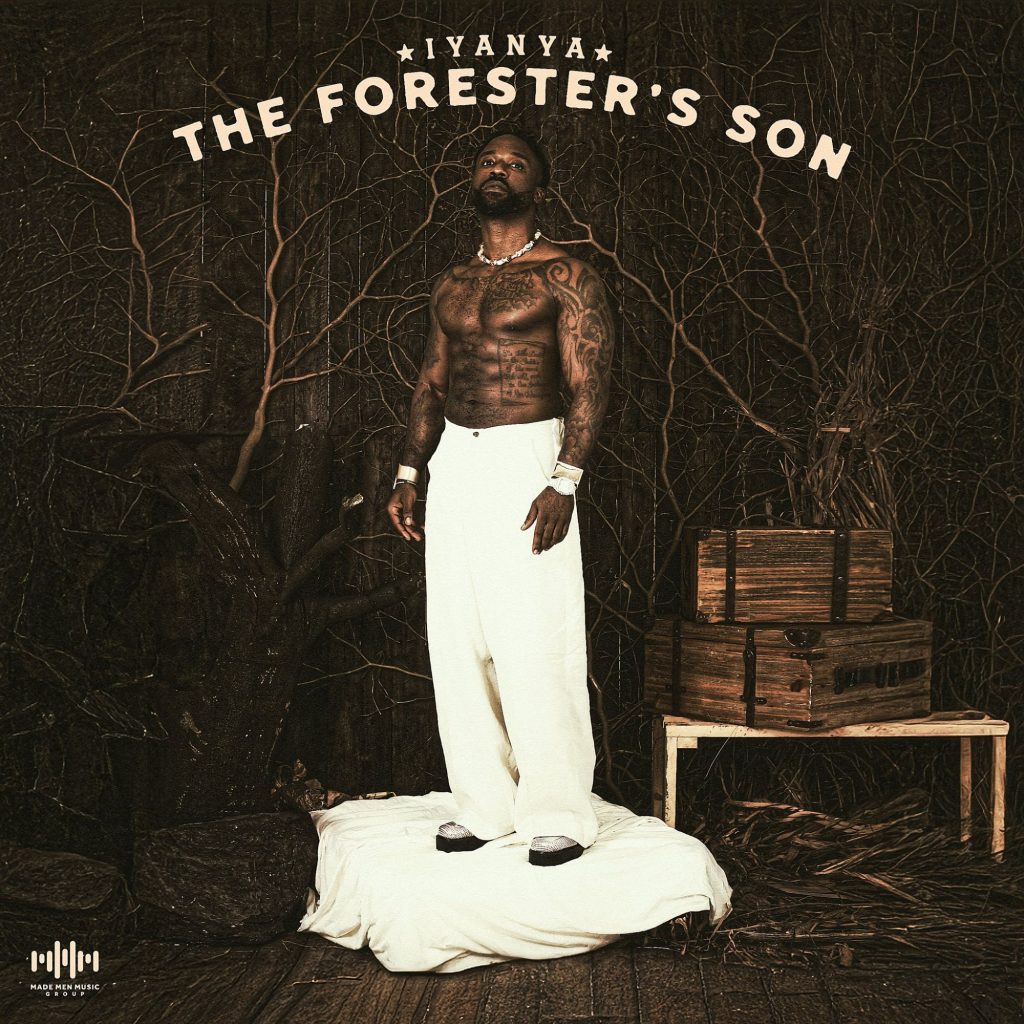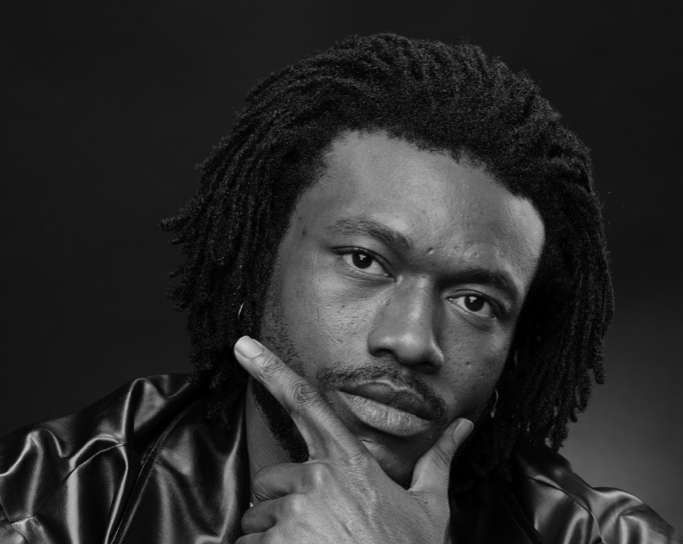On the superstar’s sixth studio album, he recognizes the need to be more dynamic and leave his comfort zone. And on numerous moments on the album, this decision pays off as he sounds the most inspired he’s been in a while. However, he can’t help but revert to his old ways eventually.

It was always going to be an herculean task, following up yet another successful album right after the undeniable classic that was Made In Lagos. You see, the thing about classics that have such resounding, cultural impact is that it heralds a moment that is bigger than the artist itself and is also a landmark moment for the culture. Made In Lagos wasn’t only significant for Wizkid’s legacy, but was very pivotal in the successful propagation of Afrobeats to the world.
So as an artist, you’re going to be in a difficult creative headspace after said album. Yes, the momentum would be cataclysmic to your career but there is always a dichotomy of what’s the right creative path to take. You don’t want to move on too quick from the era, because it’s the sort that has long lasting impact that could span years. At the same time, you don’t want to get stuck in a creative headspace where that sonic template is all what you have to bring to the table.
The former decision is always the better decision in the long run. Yes, it might force people into moving on but it will pay off because that moment would be short-changed anyways, if you decide to recreate it. Letting it be the lightning in a bottle moment will hold up its significance and longevity better. It’s like making a sequel to a classic movie. The odds of making one that’s just as good, and doesn’t stand in the shadow of the original—even if it were good—is infinitely small. The fans may clamor that it’s what they want, but the fans don’t know what they want. Consistent, but meaningful evolution is the key to maintaining success.
Doubt what I’m saying? Just look at how More Love Less Ego (MLLE) has aged over the years. It has gotten more scorn than it’s deserved. The general consensus is that it’s a bad album, as the numbers and critical reception hasn’t held up like MIL did. It barely got major nominations or produced a solid standout record that would have preserved its currency value. Why? It’s a good enough album from a superstar, it probably should have faired better. However, because it tried to replicate the magic of MIL—albeit little tweaks—it remained in its shadow and could not carve out its own legacy.
Wizkid of all people, understood this and knew he had to take Morayo in a new direction. Of course, you can still trace the Brent Faiyaz assisted Piece Of My Heart to the same sonic roots that birthed his last 2 LPs, but a good single is supposed to aid smooth transition from a previous era to a new one. As in, have elements from the past so it’s not alienating to listeners and also provide a glimpse into the future of what’s in store.
This writer doesn’t care much for the overall song, as it’s indeed derivative of the same rhythmic Wizkid we’ve gotten in the past eight years, but the second half after the beat switch was simply elite. Wizkid’s writing and delivery was consistent with the theme of the song and even compelling. The melodies on the second half were also more soulful and resonant, than the first. The song broke multiple streaming records and primed the audience for a new era. But the question still lingered, are we really getting a totally new version of Wiz?
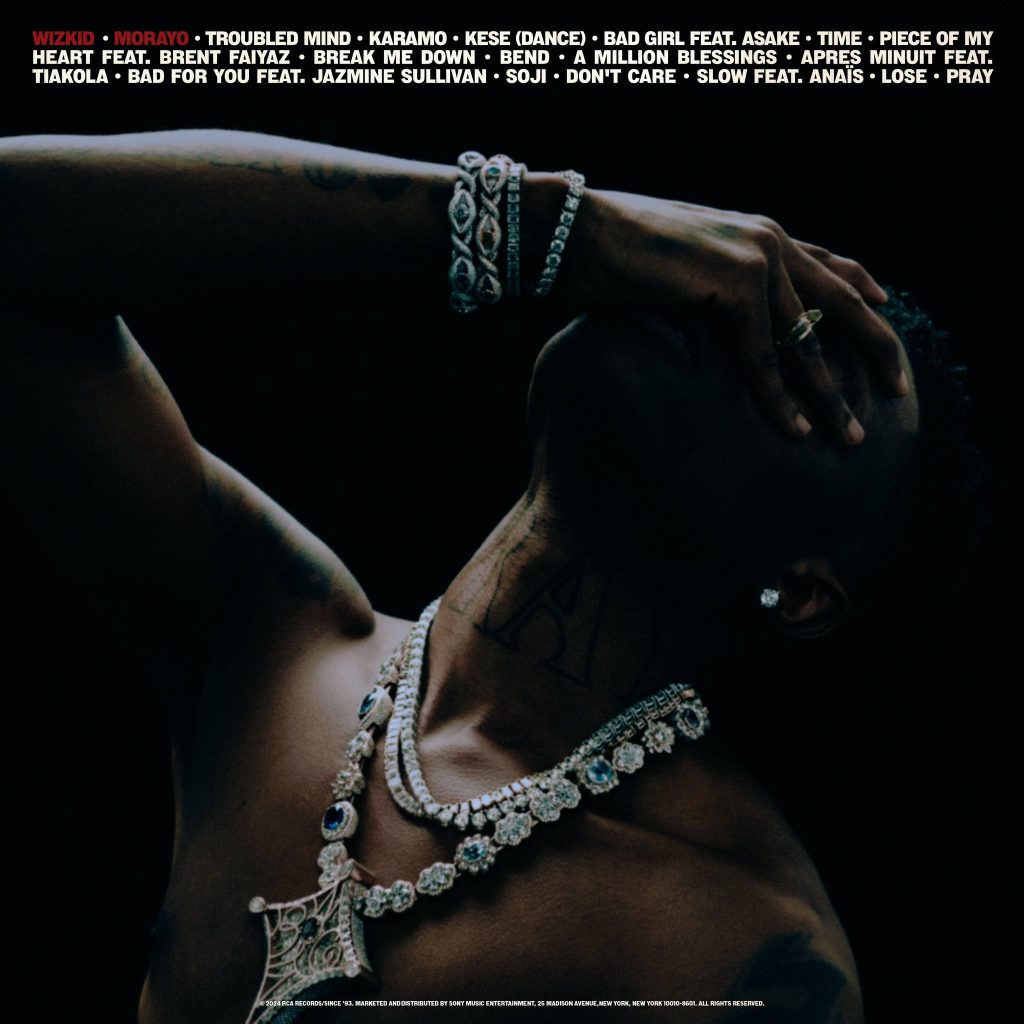
Visceral African percussion and Juju synthesizers open the album, as Wasiu Ayinde’s performance at his mother’s burial ceremony grounds us in the sentiment of who this album is dedicated to. In case you missed the title, here is a reminder that this is his tribute to his late mother. Troubled Mind is the closest thing you’ll get to an introspective Wizkid. The chorus hints at the fact that he’s been dealing with grief, although the verses fail to delve into the intricacies of it and only remain surface level. Nonetheless, the permeating log drums and cultural atmosphere would suffice for most.
On Karamo, Wizkid dials things up a notch and heads down to familiar mid-tempo territory. But unlike, MIL it isn’t highlighted by jazz horns and familiar swing drums. The beats here are more kinetic and cultural, with saxophone horns. The narrative here isn’t grandiose either, as Wiz is inviting his love interest to the dance floor and promising her the world with the assurance of a superstar that can back it up. This is a good song with a very competent hook and a second verse where Wizkid is quite dynamic. Yes, the beat arrangement is a bit derivative of previous eras but he manages to put a different spin on it.
When we get to Kese (Dance), it’s clear this is another tightly cohesive Wizkid album with production spearheaded by P2J. Matter of fact, this writer didn’t think the producer had it in him to create something so viscerally cultural. Kese is an ode to the earlier days of Wizkid’s more uptempo bangers and whilst it doesn’t quite the hit the mark of those earlier standards, you can’t in good faith say that the effort isn’t there or that it’s inherently a bad song. It’s good enough for what it is.
P. priime does his thing on Bad Girl ft. Asake, capping off an amazing run this year with production credits on another behemoth album. He understands Wizkid’s midtempo strengths and crafts a punchy beat that perfectly straddles the line of up-tempo and mid-tempo, with minimalistic instrumentation. The chorus is one of the best on the LP and both verses service the production well. Asake is known for putting in tight shifts on guest appearances to the point that he steals the song, from the owner itself. Not here though, as both artists are tightly matched with Wizkid holding his own well also.
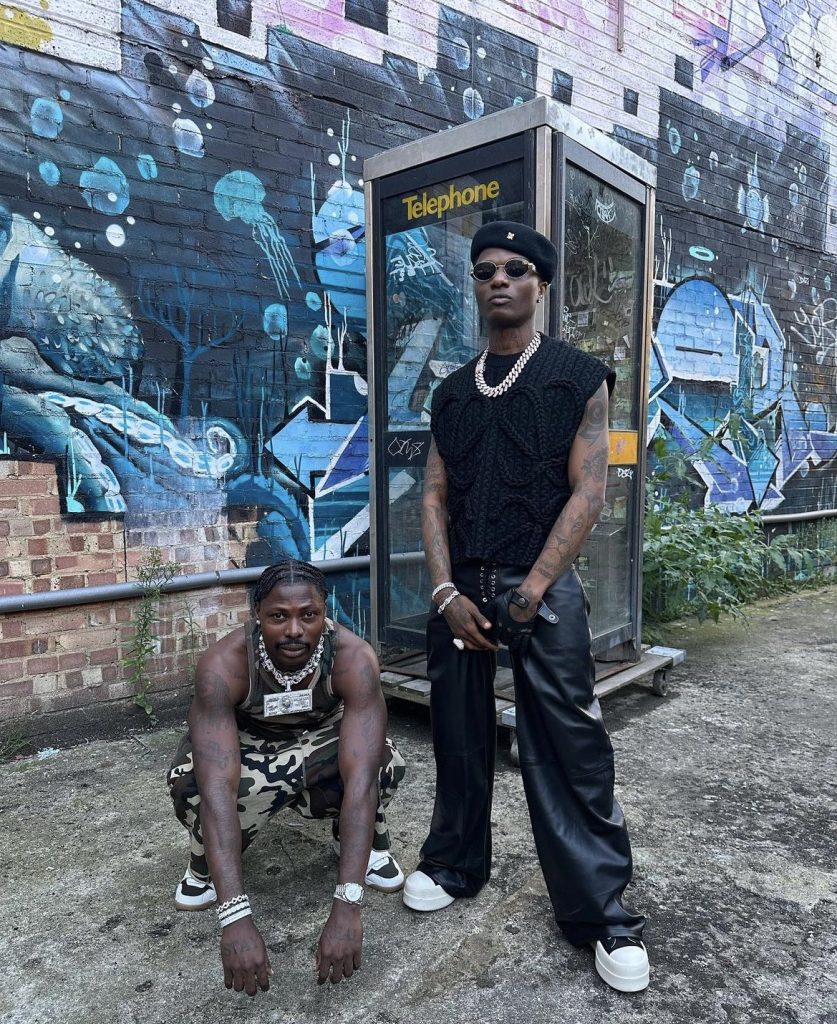
On Time, we head back into that familiar R&B fusion territory that defined his past two albums. P2J’s production has a good inherent value of sounding sophisticated and lush. Once again, where MIL was defined by its prominent jazz horns, guitar strings and warm piano notes take precedent on this album. It’s the stereotypical Wizkid delivery you’ll get on this song, with familiar musings about love and it would be enough for most.
Break Me Down is Afro-Bashment at its best and Wizkid turns in one of his more memorable and competent deliveries on the entire album. It’s not just the flows that are impressive, but the writing in itself is very picturesque and paints vivid images of Wizkid indulging in the euphoric pleasures and cheap thrills of love. The bounce is pulsating and groovy in the way, that would elicit treacherous hips gyrating on the dance floor. Bend heads to the Afro-Pop lamba territory of ‘Kese (Dance)’ but the beat isn’t as immersive and his flows sound dated.
A Million Blessings is another attempt at introspection by Wiz, but it ends up as an episode of reflection and affirmation of his current status as one of the genre’s superstars. The writing hardly looks inward, but it does well at highlighting Wizkid’s gravitas so it works to an extent. Après Minuit ft. Tiakola is another love song, that isn’t so distinctly different from the other midtempo, R&B fusion songs on the album but Tiakola’s beautiful latin touch—not only gives it that unique identity, but also elevates the song. Once again, on this album—like MIL and MLLE—the A&Ring is excellent. Wizkid’s team is astute at picking features that not only compliment Wizkid’s artistry, but also elevate the songs in itself.
Bad For You ft. Jazmine Sullivan proves the aforementioned point even better. Wizkid does his usual rhythmic-reliant flow, but it’s Jazmine that steals the show with her sultry vocals. The production on this song is the farthest away from Afrobeats on the LP and is more attuned to R&B. Soji has a very catchy and resonant chorus, but asides that doesn’t have much going for it, with a monotonous Wizkid on both verses. Don’t Care on the other hand is a better written song, with another resonant hook. The delivery however doesn’t flatter the lyrics.
Once again, it’s another guest artist Anaïs Cardot, that elevates Slow, a slow burn, sensual record that’s most likely to age well. The brilliance in this sort of song doesn’t leap right out of the gates, due to the fact that it’s bubbling beneath the surface—until subsequent listens. It’s mood music at its best and the type of love song, you play with dim lights whilst intimate conversation goes on in hushed tones, with intermittent stolen kisses in between. Lose is yet another attempt at introspection, that doesn’t go beyond surface level musings about lifestyle and blessings. It’s lost on this writer if this is intentional from Wiz, or it’s a lack of ability but the fact that this is recurring, could easily lend to either spectrum.
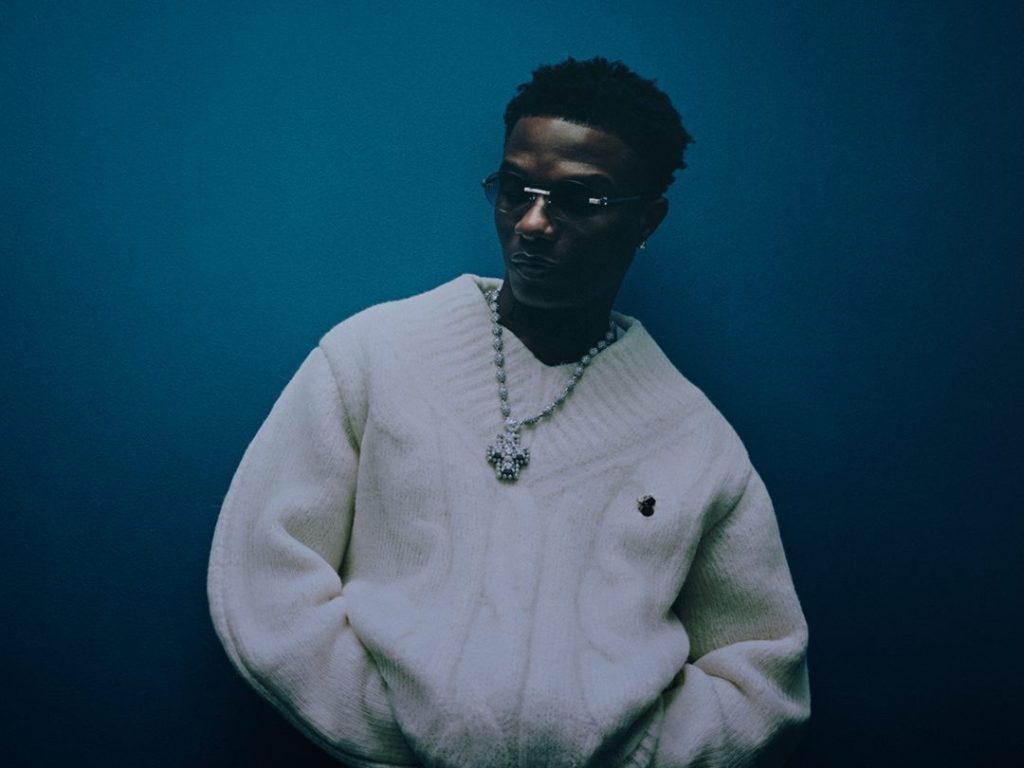
The visceral percussion return on the album’s outro, Pray and it’s a full circle moment, when Wizkid references his mother and the fact that his mother prays for him. It’s one of the best written songs on the album, with the best bridge and chorus combination after Piece Of My Heart—and it ensures the album ends on the same high note it started on.
The best parts of this album is the opening four-track sequence, where the production is very Afro centric and Wizkid sounds the most inspired he’s been in years. However, after that it pretty much heads back into ultra-familiar territory, and whilst it might be enough for fans because it is executed well, casuals might find it a bit tiresome because it is almost an over-flogged formular at this point. It’s not in anyway a bad album, but it’s not great either. Just like MLLE, it’s stuck somewhere in between.
In the past four years, Wizkid has given us a new trilogy of albums and he has made one thing pixel clear—this new midtempo, R&B fusion sonic template is the bedrock of his current creative headspace. It might be monotonous to do the same thing, multiple times but Wiz doesn’t seem to care, as he keeps on making little tweaks to it and if anyone has earned it? It’s a superstar at the pinnacle of the genre’s success, that has nothing left to prove anymore.
Final Verdict:
Sonic Cohesion & Transitions: 1.6/2
Expansive Production: 1.3/2
Songwriting: 1.4/2
Delivery: 1.2/2
Optimal Track Sequencing: 1.3/2
Total: 6.8/10


